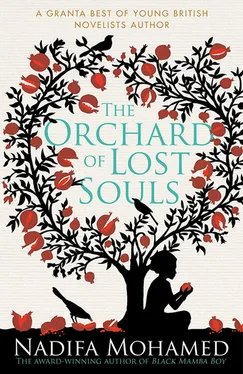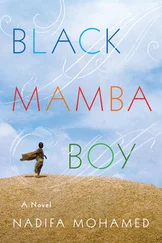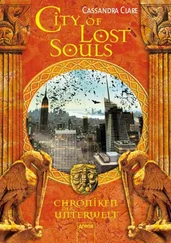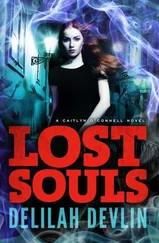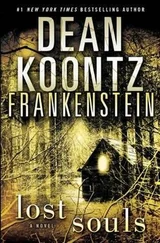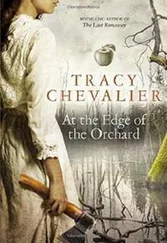Deqo leans against Nasra and wraps her arms tentatively around her waist, beaming too.
Just as Deqo has become accustomed to the heavy drum of rain on the corrugated tin lullabying her to sleep, the rain season comes to an abrupt end. A whistling draught replaces the leak of water from the rusted roof as jiilaal winds try their best to sneak into the bungalow. Nasra stuffs the holes with cloth when Deqo complains of the cold and leaves the stove burning a little later into the evening. The shrieking wind reminds Deqo of the hardships the jiilaal would bring to Saba’ad: red, infected eyes from the grit, old people perishing from the night chill, fights between the refugees over water. It was a time of forbearance and endless waiting. The only good thing it brought was deep, cloudless skies. She remembers clambering up the barred window onto the flat roof of the orphanage with Anab and watching the camp settle into sleep. If there was enough moonlight they could see pale mountains in the distance and beneath them a swathe of the camp. Everything crisp and clean, the sky blue-black and the stars like a thousand kind eyes watching over the forgotten people, smoke from cooking fires spiralling up like prayers. She feels a pang for that view, for that moment in life when Anab was beside her and the world they knew was calm and peaceful; there is no way to reclaim it even if she returns to Saba’ad.
The routines of the house have become familiar to Deqo and she knows which customer is for which woman: the younger, smartly dressed men go to Nasra, the middle-aged husbands hiding their faces behind sunglasses to Stalin, the drunks and gangster types to China, and the humble workers to Karl Marx. Nasra complains that there are only one or two customers willing to brave the curfew most nights and they are China’s type rather than hers. Once upon a time they had journalists, and businessmen with dollars in their pockets, she said, rather than hawkers, drunkards and criminals.
The last night of the year arrives and the only male voices to be heard in the house are from the radios; it is too cold, dark and blustery for even the drunks. The evening passes glumly with Deqo sitting on Nasra’s bed, watching her rearrange the room; she moves the furniture from one place to another and throws out many of her possessions because she claims to be bored with them. She leaves the pile in the hallway for Deqo to pick over and then throws herself face down on the bed.
‘What I wouldn’t do to leave this place!’ she says, squeezing a pink cushion into her eyes.
Deqo lightly strokes the back of her hair.
‘Who would have said my life would come to this? I’m clever, you know. I’m not a drunk like China or illiterate like Karl Marx. I could have been someone. Once you do this it’s like you can never get out, never be anything else. I go outside and people look at me as if I’m a ghost walking around in the daytime.’
‘Is that why you don’t leave the bungalow much?’
‘That and I feel as if I have nothing left out there. Why am I even telling you this?’ She drops her head onto the quilt and then brings it up again. ‘I don’t feel like a real person. I have no family, no friends, no husband, no children. Every day I open my eyes and wonder why I should bother getting up, or eating, or earning another shilling. No one would miss me, in fact my mother would be happy to hear that I have died, she would clap her hands and say that her shame has been lifted.’
Nasra hides her face and sobs, and with wide, anxious eyes Deqo sits up. ‘I would miss you, Nasra,’ she says hurriedly, parting her back.
Nasra doesn’t reply and Deqo understands that she is not enough for Nasra, not by a long way.
The first day of 1988 is bright and blue-skied, the street outside littered with leaves and broken twigs blown about the previous night. Deqo holds a hundred shillings tightly in her right hand, a gift from Nasra to celebrate the arrival of the new year and to maybe apologise for her tears. The little girl who danced with her in the rain is sitting with her mother on a large cement step, resting her face on her knuckles; Deqo waves in greeting but when the girl raises her hand her mother yanks it down. The wiry woman narrows her eyes at her. ‘Keep walking,’ she shouts. Deqo holds up her head and marches on, but her stomach does a small flip as Nasra’s words return to her; she doesn’t want to become another daytime ghost.
Looking down at her freshly painted red toenails and the clean, lotioned skin of her feet, Deqo sees no reason for anyone to look down on her. She looks good in her mind, better than she ever has before. Her cheeks have filled out and the constant headache she used to have from hunger has gone, but she also feels heavier, slower and less sharp-witted now that she doesn’t have to graft for every little morsel. She feels as though she is in disguise: dressed in Nasra’s hand-me-down green skirt and white shirt, she wonders if anyone will recognise her at the market or if she will pass for one of the plump and carefree local girls.
Deqo veers off to the left to explore an open area she hasn’t noticed before; there are scrubby bushes in a sandpit and boys kicking a rag ball. Deqo and Anab had sometimes joined the footballers near the wide, empty riverbed beside Saba’ad; for no obvious reason some matches would just grow until maybe a hundred players gathered, creating a gravelly pitch that stretched for a mile in each direction. More makeshift balls would have to be made from rags tied up with shoestring when the others crumbled under the stampede of toddlers and teenagers, girls and boys — the girls often just picking up a ball in their hands and running to the goal because they couldn’t understand why they shouldn’t. On those afternoons, when the girls abandoned their buuls and chores and the camp was veiled by the dust they kicked up, Deqo had run and run and leapt for the golden sun, a bright medal just beyond her reach.
After watching the boys kick the scrappy ball around listlessly for a few minutes, Deqo skirts the sandpit and strolls up to a crossroad with four tracks leading away from it. She chooses one randomly and passes the giant power station, the Pepsi factory with rows of trucks parked outside, and then after another patch of scrubland there is the ditch, full of trash and spirit bottles, and a rope bridge to the other side of town. Looking down on the ditch from the swaying bridge, it is hard to believe that she once spent her nights there; it is a wild, dark jungle, a no-man’s-land full of threat and danger, her barrel probably full of snakes or scorpions by now. It is the kind of place where human skeletons might sink into the soil undisturbed and unmourned. She is a different girl now to the one who had sought shelter in that wasteland; she must have outgrown and abandoned some kind of shell or cocoon there.
The market has been her salvation, its noise and smells and rough interactions have kept her human, and she reaches it with relief, clasping the treasure in her hand more tightly. She has never had a hundred shillings before and has to fight the desire to hide it from herself for a rainy day, but Nasra made her promise to buy something frivolous with it. The spot where she had sold stolen fruit is hidden behind the large backs of several middle-aged market women. Children swarm around her newly long legs — pallid glue sniffers, shoeshines, pickpockets, religious students in long white robes and prayer caps, street sweepers — there are enough of them to populate a small town of their own, with hierarchies, feuds and alliances to match anything the adults can muster.
No one recognises her, her transformation complete; who would believe it is the same Deqo who used to sleep in a rusty barrel? She catches her reflection in a mirror hanging up in a clothes stall and sees a girl with neatly pinned up hair holding her nose imperiously high.
Читать дальше
